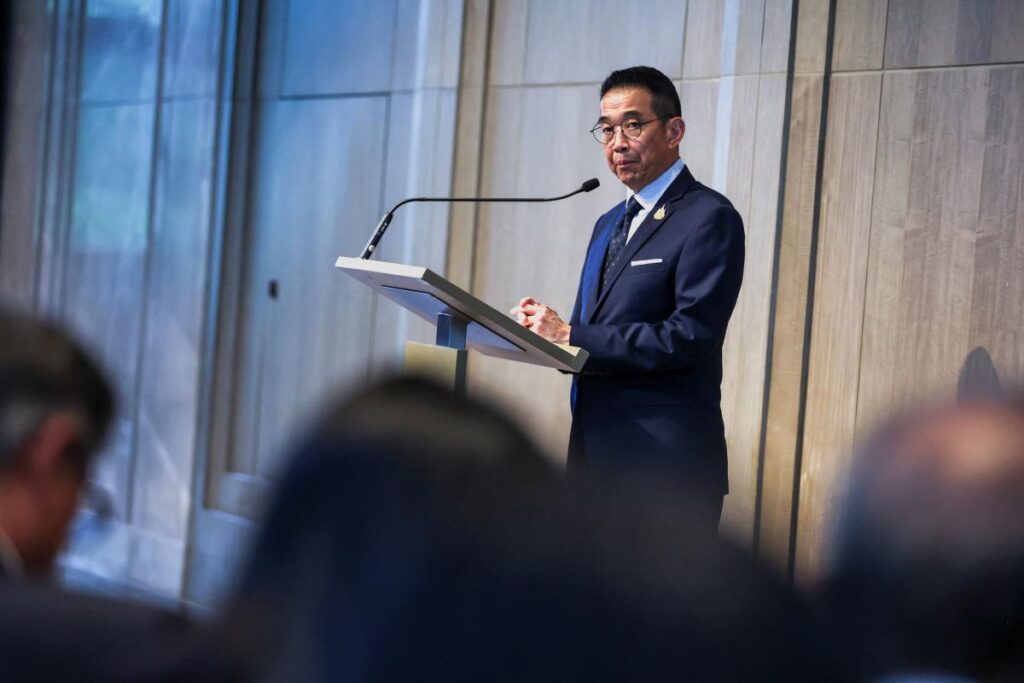This week, Thailand played host to two significant regional meetings with Asian leaders, aiming to find a resolution to the ongoing civil war in Myanmar, a conflict that has resulted in considerable political and security unrest since its commencement in February 2021. The meetings brought together representatives from China, Bangladesh, Laos, India, and Thailand, the five neighboring countries sharing a border with Myanmar, alongside members of Myanmar’s ruling military junta. In addition to this, ASEAN leaders convened in Bangkok to deliberate strategies for resolving the nearly five-year-long conflict and the junta’s plans to conduct elections in 2025. The military coup that ousted the democratically elected government ignited a fierce struggle for power, forcing millions of people to flee their homes. Among these are many Rohingya refugees seeking asylum in Bangladesh, which is now home to the world’s largest refugee camp. Reports of rampant human and drug trafficking along the borders have also drawn condemnation from China and Thailand.
While Myanmar’s military junta has pledged to hold elections next year, this promise has been met with skepticism by experts who suggest it may merely be a tactical maneuver. Thailand’s approach to the junta emphasized the necessity for any elections to be inclusive and fair. However, specialists caution that taking these claims at face value could entrap those seeking to support democratic processes in Myanmar. David Scott Mathieson, a well-known Myanmar expert, warns that engaging in premature election preparations could lead to further upheaval and stalled peace efforts. This sentiment is echoed by Thailand’s foreign minister, who reiterated that Myanmar’s neighbors would prefer to advise rather than interfere directly in the junta’s affairs. Thus, while there seems to be a pathway laid out for negotiation and peace talks, significant doubt persists about the intentions behind the junta’s electoral promises.
Amidst the complexities of the conflict, experts opine that the current climate may present an opportunity for dialogue, particularly with increasing pressure on the junta from various fronts. Reports suggest that the military is currently struggling to maintain its foothold, creating a potential opening for peace talks. Thailand’s past Prime Minister expressed hope for negotiations earlier this year, and a series of ASEAN summits focused on Myanmar’s crisis indicate a concerted effort to broker peace. Thailand’s geographical closeness to Myanmar entails substantial ramifications; with a border stretching nearly 1,500 miles and hosting around two million migrants, Thailand is intricately affected by the unrest. With this consideration in mind, it is critical for Bangkok to adopt a more engaged and assertive stance—not just in humanitarian aid, but in advocating for peacebuilding and democratic processes.
In terms of broader regional dynamics, China has traditionally maintained a dual approach, supporting both the ruling junta and opposition forces to safeguard its interests within Myanmar. The Chinese government’s motivations are deeply rooted in maintaining favorable relations while protecting its economic investments. Recent developments, including notable victories by Myanmar’s rebel factions, have prompted China to adopt a renewed push for peace discussions. Their involvement has been acknowledged by major rebel groups, who have indicated openness to dialogue, partly due to Beijing’s mediation efforts. Nevertheless, analysts caution that foreign pressure alone is insufficient for achieving meaningful and lasting peace, as the junta’s inherent resistance to power-sharing continues to remain the main barrier to a sustainable ceasefire.
The political landscape within Myanmar remains fraught with uncertainty as key stakeholders navigate the complexities of the situation. While the hope for peace negotiations is palpable, the underlying challenges posed by the junta’s grip on power highlight a precarious path forward. Without addressing the junta’s essential refusal to compromise, any peace effort may only serve as a temporary fix rather than a genuine resolution to the conflict. Observers insist that a more nuanced and collaborative approach involving regional actors—one that prioritizes dialogue, inclusivity, and the interests of the broader Myanmar populace—will be crucial for moving beyond mere promises of electoral processes.
As the international community, especially neighboring countries like China and Thailand, watches closely, there exists a delicate balance between influence and intervention. The meetings in Thailand represent a critical chance for regional leaders to unite and strategize amid a backdrop of protracted conflict. While the desire for peace signals a journey toward recovery for Myanmar, stakeholders must remain vigilant and apply consistent pressure to ensure any dialogue pursued by the junta transforms into substantive changes rather than empty gestures. The outcome of this ongoing tumult will not only shape the immediate future of Myanmar but also significantly impact regional stability across Southeast Asia.

